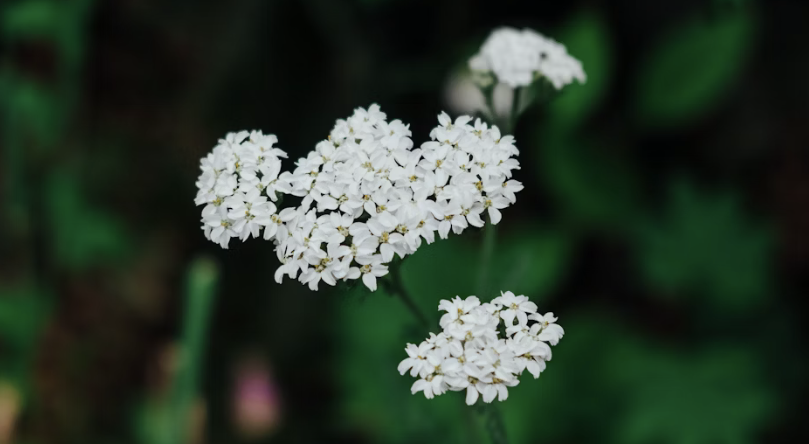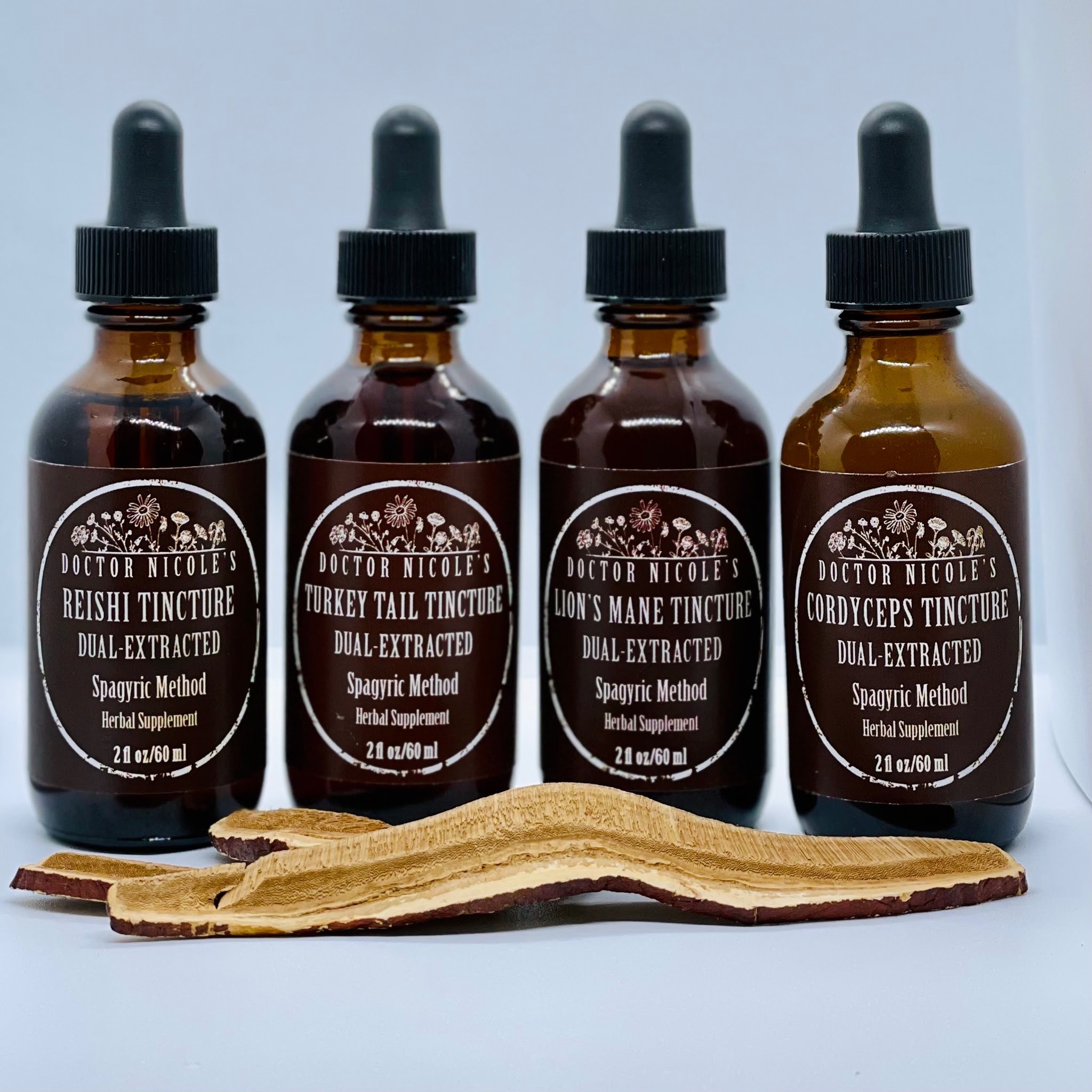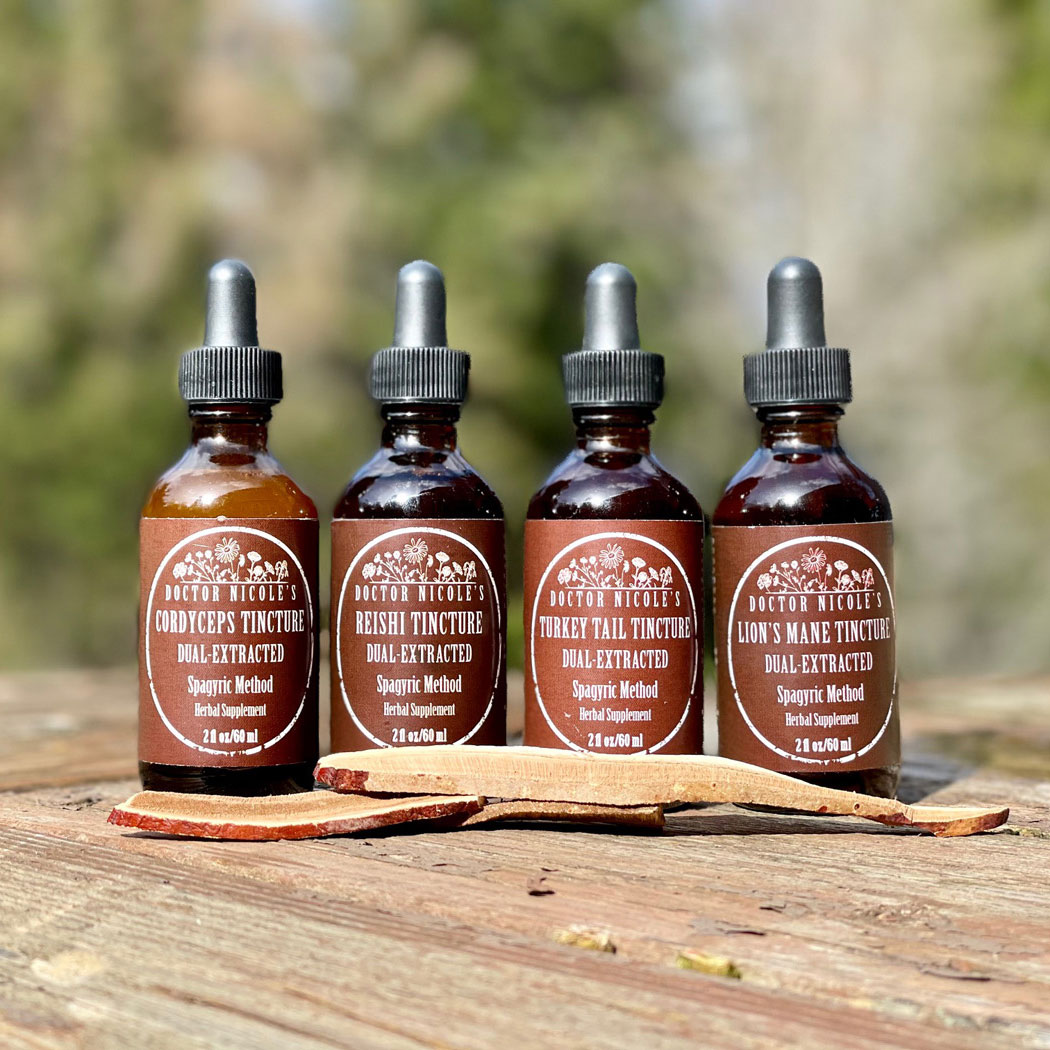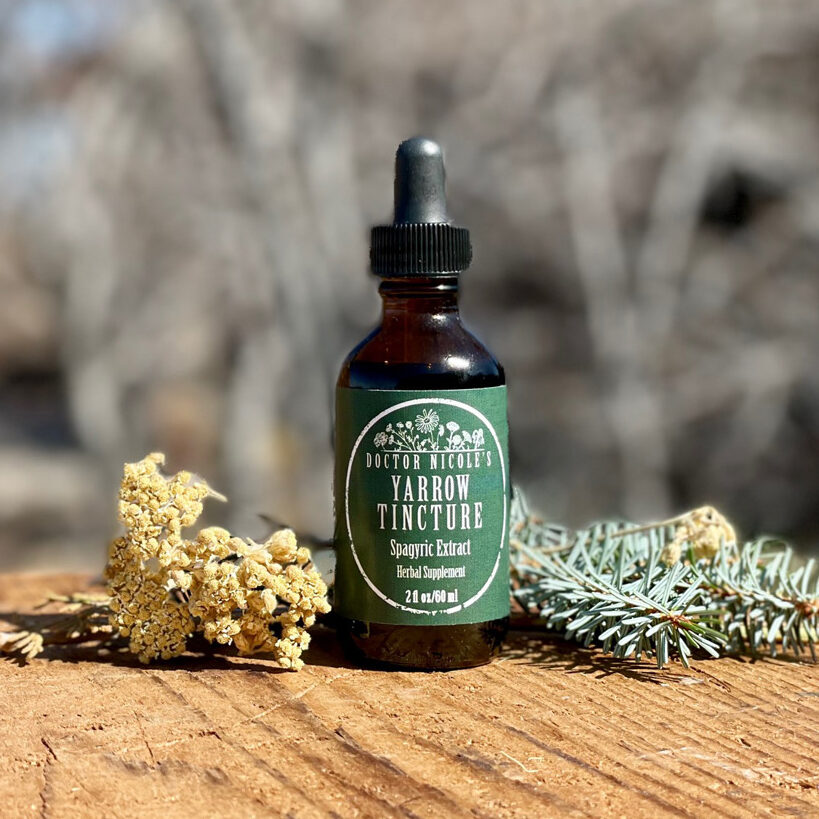Newly Discovered Benefit for a Time-Honored Herb
Traditionally used for wounds, respiratory infections, influenza, colds, and fevers, a recent study has found yarrow (Achillea millefolium) may also be helpful for neurodegenerative disorders, including multiple sclerosis, epilepsy, Alzheimer’s, and Parkinson’s disease. For our purposes here, we will be focusing specifically on the findings related to MS and how yarrow helps to slow the progression and prevent relapse. Let’s have a closer look at the research highlights and how this common herb may be able to help those struggling with the disease.
Researchers Discover MS Help From a Surprising Source: Yarrow
Researchers in Iran conducted a triple-blind study of the effectiveness of yarrow for those with relapse-remitting MS. While it was a relatively small study with 65 people, the results are promising. Each participant was given either 250 mg yarrow extract, 500 mg yarrow extract, or a placebo every day for one year. Those in the high and low-dose groups experienced a significantly lower relapse rate compared to the placebo group. They also had a longer span of time before they suffered their first relapse. Moreover, MRI imagery revealed that those in the yarrow group had smaller lesions than those given the placebo, whose lesions grew larger during the study.
Each of the participants was also measured against the Expanded Disability Status Scale (EDSS). The placebo group consistently scored worse, whereas the scores continued to improve for those in the low-dose group and even better for the participants in the high-dose group. Additional cognitive measures also improved — particularly in the high-dose group. These measures included a word-pair learning test and information processing speed.
The team concluded that one year of yarrow extract supplementation improved MS-related symptoms and relapse outcomes in patients with relapsing-remitting MS. EDSS scores and MRI results suggest a delay in disease progression. The study was published in the journal Phytomedicine for the January 2019 edition.1
Likewise, an earlier 2017 study using animal models established that the antioxidant and anti-inflammatory qualities of yarrow play an important role in slowing the progression of MS.2 The researchers note:
“Inflammatory and oxidant pathways (via modulation of the immune system) are thought to be involved in pathogenesis of the disease. The experimental autoimmune encephalitis (EAE) is a well-established animal model of MS in which, in addition to demyelinating lesions and inflammatory reactions, cognitive disturbances are also evident within EAE albeit not in the early phase of this model. Herbal medicine as an alternative or complementary therapy protocol for MS has been shown to enhance the efficacy of current treatments.”
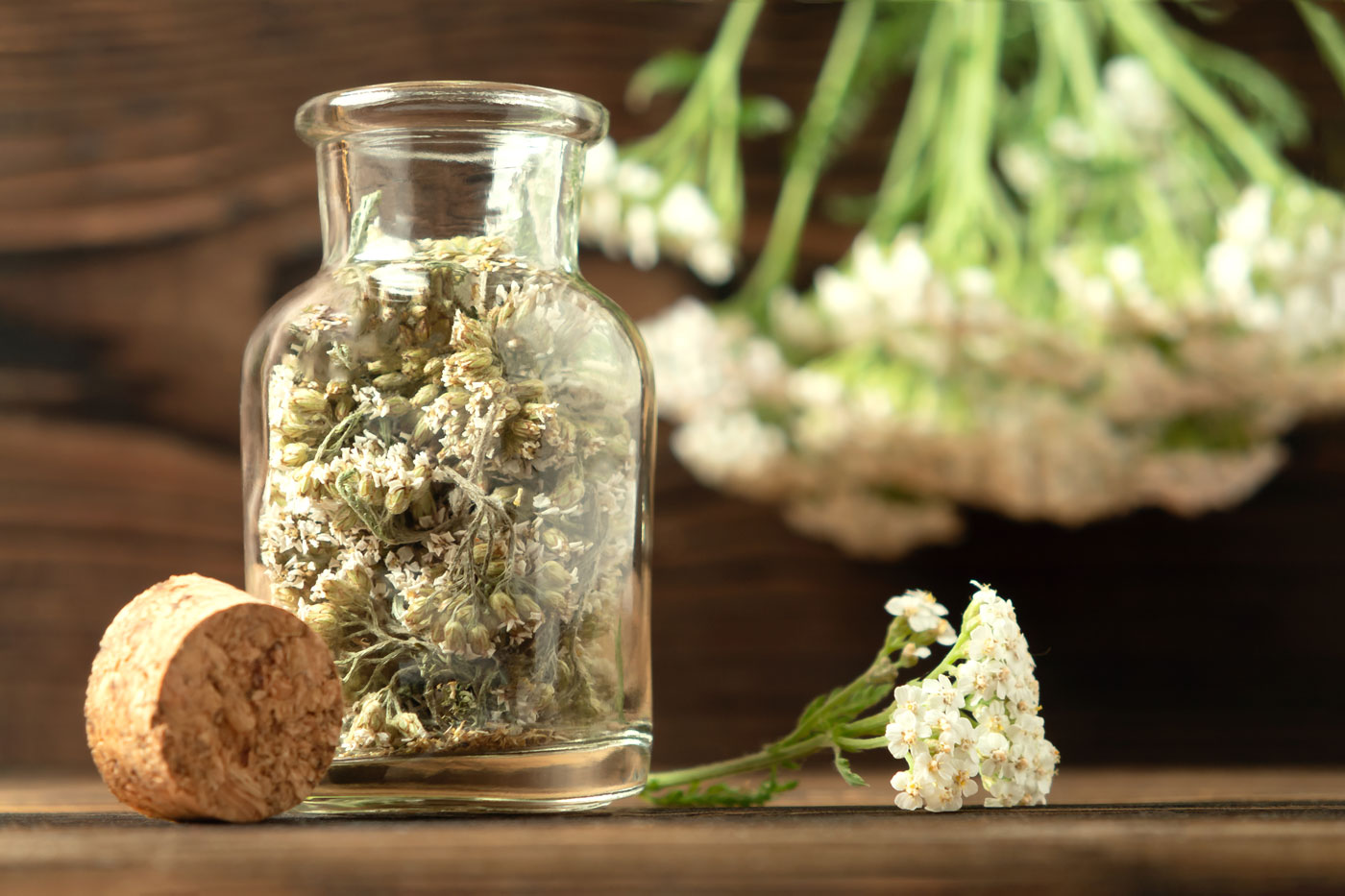
Yarrow was shown to attenuate disease severity, inflammatory responses, and demyelinating lesions in experimental autoimmune encephalomyelitis (EAE).3 Two bioactive flavonoids in the herb are of particular interest: apigenin and luteolin. Apigenin was shown to reduce progression and relapse of EAE4, while luteolin suppressed behavioral deficits; prevented relapse and reduced inflammation in EAE; improved maturation of Oligodendrocyte Precursor Cells (OPCs); and inhibited proliferation and IFN-gamma production by murine and human autoimmune T cells. 5,6
The team concluded:
“There is an extensive body of evidence on beneficial effects of Achillea and its main flavonoids on nervous system related disorders within the database. However, almost all of the studies performed have focused on in vitro and animal preparations. Also, almost all of these in vivo and in vitro reports showed beneficial preventive or therapeutic properties of Achillea and/or its flavonoids on epilepsy, Alzheimer’ diseases, multiple sclerosis, Parkinson’ diseases and stroke . Considering little side effects of Achillea and its derivative flavonoids on main brain functions, as well as their availability for supplemental use, one can suggest using them in neurodegenerative disorders.”
My Top Herbal Formulations for Autoimmunity & Neurodegenerative Disorders
As we have seen, yarrow is an excellent herbal remedy for neurodegenerative disorders — including those that involve autoimmunity. This is why my apothecary has formulated a concentrated extract of yarrow using only the highest quality wild-harvested or organically grown herbs that are processed using the spagyric method.
Our Mushroom FOURtress Bundle is also an outstanding option for autoimmune conditions — I personally use it every day to manage my MS. This essential bundle contains dual-extracted, fruiting body tinctures of cordyceps, lion’s mane, reishi, and turkey tail. Each of these potent medicinal mushrooms has unique, research-backed benefits to support the body and brain.
Cordyceps is valued for supporting the body, lungs, and brain in both chronic and acute situations, while Lion’s Mane promotes cognitive and nerve health, boosts energy, and helps ease stress. A powerful adaptogen, Reishi encourages deeper sleep, strengthens immune function, and protects against the harmful effects of stress. Turkey Tail offers outstanding support for gut and heart health, helps balance blood sugar, and reduces inflammation. Together, these powerful remedies provide a holistic foundation for long-term vitality and resilience.
MUSHROOM FOURTRESS MIRACLE
“I have known about Nicole and her journey with MS for several years but like most I have been relying on modern medicine to help my MS. My spasticity and weakness in my legs has been getting worse and I even started using a cane. My fatigue was horrible. I often didn’t know how I was functioning at all. I started taking the Mushroom FOURtress a few days ago. Within 2 days my spasticity was gone and my fatigue was gone in three. This is life changing! I will continue to use these products.” -Chuck Ellsworth
At my apothecary, we merge science and tradition to bring you trusted natural remedies. Each product is carefully vetted through strict quality standards, ensuring safety and effectiveness for long-term use. Whether you’re managing a complex chronic condition or simply aiming for better overall health, our plant-based medicinal extracts are here to support your journey.
Visit the apothecary today and explore targeted natural medicines that help you to reach your health goals.
Nicole Apelian
Nicole’s Apothecary Products in this Post
References
- Ayoobi, Fatemeh et al. “Achillea millefolium is beneficial as an add-on therapy in patients with multiple sclerosis: A randomized placebo-controlled clinical trial.” Phytomedicine : international journal of phytotherapy and phytopharmacology vol. 52 (2019): 89-97. doi:10.1016/j.phymed.2018.06.017
- Ayoobi, Fatemeh et al. “Bio-effectiveness of the main flavonoids of Achillea millefolium in the pathophysiology of neurodegenerative disorders- a review.” Iranian journal of basic medical sciences vol. 20,6 (2017): 604-612. doi:10.22038/IJBMS.2017.8827
- Vazirinejad R, Ayoobi F, Arababadi MK, Eftekharian MM, Darekordi A, Goudarzvand M, et al. Effect of aqueous extract of Achillea millefolium on the development of experimental autoimmune encephalomyelitis in C57BL/6 mice. Indian J Pharm. 2014;46:303. doi: 10.4103/0253-7613.132168
- Ginwala R, McTish E, Raman C, Singh N, Nagarkatti M, Nagarkatti P, et al. Apigenin, a Natural Flavonoid, Attenuates EAE Severity Through the Modulation of Dendritic Cell and Other Immune Cell Functions. J Neuroimmune Pharmacol. 2016;11:36–47. doi: 10.1007/s11481-015-9617-x
- Barbierato M, Facci L, Marinelli C, Zusso M, Argentini C, Skaper SD, et al. Co-ultramicronized Palmitoylethanolamide/Luteolin Promotes the Maturation of Oligodendrocyte Precursor Cells. Sci Rep. 2015;5:16676. doi: 10.1038/srep16676
- Oral flavonoids delay recovery from experimental autoimmune encephalomyelitis in SJL mice. Biochem Pharmacol. 2005;70:220–228. doi: 10.1016/j.bcp.2005.04.041


